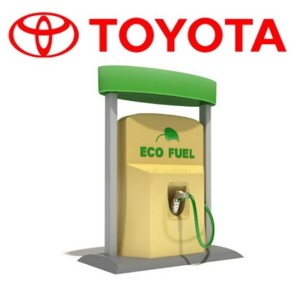Toyota receives overwhelming interest for its hydrogen fuel cell vehicle
January 19, 2015Orders for the Mirai have surpassed Toyota’s expectations for 2015
Toyota has announced that it has received a large number of orders for its new fuel cell vehicles, which will use hydrogen fuel in order to operate. The Mirai, as the vehicles is called, was launched in December of last year in Japan. Toyota has estimated that it would sell only 400 models of the fuel cell vehicle over the next 12 months, but the company has received more than 1,500 orders for the vehicle.
Japan continues to grow as a prominent fuel cell market
Japan has turned into one of the most attractive fuel cell markets in the world. The Japanese government has been promoting the use of these energy systems within the residential sector and several industries within the country have begun using fuel cells as a source of electrical power. Japan has also taken a strong interest in clean transportation. The government has begun investing in the development of a hydrogen fuel infrastructure, which is needed in order for fuel cell vehicles to find success in the country.
Demand for fuel cell vehicles is on the rise among government agencies and corporations
 Toyota notes that demand for its fuel cell vehicle was four times higher during the first month of its release than had been expected for all of 2015. Notably, the majority of orders coming in for the Mirai come from government agencies that are looking to adopt clean vehicles. Corporations have also shown interest in the vehicles, as they must comply with emissions regulations that have been instituted in Japan. Fuel cell vehicles may become a common sight among corporate fleets in the coming years.
Toyota notes that demand for its fuel cell vehicle was four times higher during the first month of its release than had been expected for all of 2015. Notably, the majority of orders coming in for the Mirai come from government agencies that are looking to adopt clean vehicles. Corporations have also shown interest in the vehicles, as they must comply with emissions regulations that have been instituted in Japan. Fuel cell vehicles may become a common sight among corporate fleets in the coming years.
Lack of hydrogen fuel infrastructure could hinder the adoption of fuel cell vehicles
According to Toyota, the Mirai can travel more than 400 miles on a single tank of hydrogen fuel. This is approximately three times further than any electric vehicle can travel before needing to be recharged. The problem, however, is that fuel cell vehicles do not have the same infrastructure support that conventional vehicles have, making it more difficult for drivers to access hydrogen fuel.

 With over 15 years of reporting hydrogen news, we are your premier source for the latest updates and insights in hydrogen and renewable energy.
With over 15 years of reporting hydrogen news, we are your premier source for the latest updates and insights in hydrogen and renewable energy.